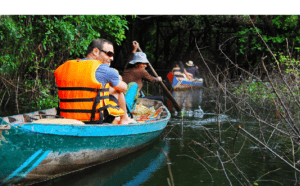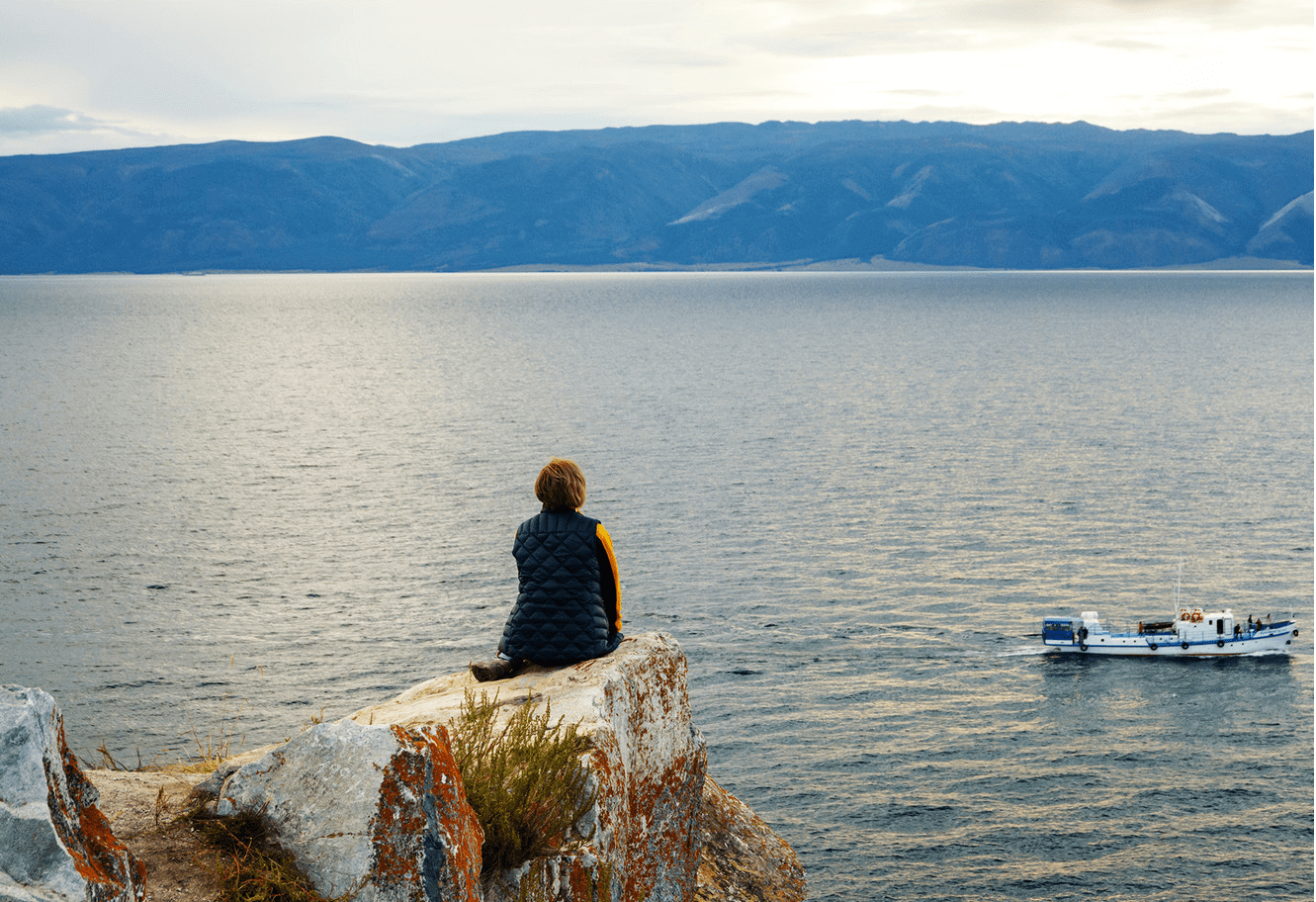
I. Introduction
When it comes to the exhilarating world of travel and aspiring travelers plan their upcoming trips, they often find themselves pondering the perennial question: “Should I venture solo or embrace the camaraderie of group travel?”. This question often stands out amidst the excitement, there is always the dilemma: solo or group travel.
Each style offers unique opportunities, challenges, and enriching encounters that cater to different travel personalities and preferences. Both options, solo travel, and group travel, offer unique experiences and come with their own set of advantages and disadvantages.
Deciding between these two divergent paths can be a daunting task, especially for first-time travelers seeking to find their ideal journey.
When deciding between solo travel or group travel, it’s crucial to consider your personal preferences, travel goals, and desired experiences. Ask yourself whether you seek solitude or enjoy the company of others during your adventures.
The Importance of Making the Right Choice
The choice between solo travel and group travel goes beyond mere logistics. It touches upon our inner desires for freedom, connection, and personal growth. Understanding the differences between each approach empowers travelers to make an informed decision aligned with their goals, ensuring a memorable and satisfying journey.
Purpose and Scope of the Article
This article seeks to navigate the realm of solo and group travel, examining the advantages and drawbacks of each option.
So, whether you’re a free-spirited solo traveler or someone who thrives in the company of others, this article will help you navigate the choice between solo travel or group travel and set you on the path to unforgettable experiences in 2024.
II. Pros and Cons of Solo Travel

Solo travel, an adventure of self-discovery and liberation, beckons to those seeking unparalleled freedom and independence.
While embarking on a solo journey, travelers embrace the thrill of crafting personalized itineraries. They meet new people and immerse themselves in unfamiliar cultures.
However, this form of exploration is not without its challenges, with potential loneliness and safety concerns lurking on the horizon.
Pros:
Embracing Freedom and Independence
One of the primary allurements of solo travel is the freedom to navigate the world on your terms.
Without the need to coordinate with others, travelers can embark on impromptu adventures.
They meander through hidden alleyways and immerse themselves in uncharted landscapes.
Embracing the joy of spontaneity, solo adventurers can tweak their plans as desired, allowing for delightful surprises along the way.
Personalized Itineraries and Flexibility
In the realm of solo travel, the itinerary is a blank canvas waiting to be painted with individual interests and passions.
Each day presents an opportunity to chase new experiences, be it exploring historical landmarks, engaging with local communities, or seeking adrenaline-pumping activities.
With no compromises required, travelers can revel in the bliss of creating an itinerary tailored to their desires and aspirations.
Meeting New People and Expanding Horizons

Far from being a solitary endeavor, solo travel offers a unique chance to forge connections with fellow explorers and locals.
The openness that comes with solo wandering often leads to serendipitous encounters and lasting friendships.
Embracing cultural exchanges and learning from diverse perspectives, solo travelers expand their horizons and deepen their understanding of the world.
Cons:
Feelings of loneliness
Traveling alone can sometimes lead to feelings of loneliness, especially during moments when you may desire companionship.
Being on your own for extended periods may result in a sense of solitude and a longing for social interaction.
Certain activities, such as dining or visiting attractions, can feel less fulfilling without someone to share the experience with.
Exploring new destinations without the company of others can intensify the feeling of being isolated and disconnected.
The absence of travel companions
The absence of travel companions may make certain experiences feel less fulfilling or exciting.
Engaging in activities that are typically enjoyed with others, such as going on a group tour or attending social events, may feel incomplete when experienced alone.
Celebratory moments or memorable events might not be shared with anyone, potentially reducing the overall excitement and enjoyment.
The absence of travel companions can limit the opportunity to create shared memories and relive those experiences together.
Exploring new destinations alone
Exploring new destinations alone can sometimes amplify feelings of isolation, particularly in unfamiliar environments.
Being in an unfamiliar place without the familiarity of a companion can heighten the sense of being alone and increase feelings of vulnerability.
Navigating unfamiliar surroundings without someone to rely on for support or assistance can enhance the perception of isolation.
Language barriers or cultural differences may become more apparent when traveling alone, further contributing to feelings of isolation.
It’s important to strike a balance between enjoying your own company and seeking social interactions when desired, ensuring a fulfilling and enjoyable solo travel experience.
Responsibility for Planning, Logistics, and Decision-Making:
When traveling alone, you are solely responsible for planning your itinerary, making logistical arrangements, and deciding on the next course of action. This can be overwhelming for some, but it also presents an opportunity to enhance organizational skills and self-reliance.
Safety Concerns and Risk Assessment:
Safety is a significant concern for solo travelers, especially when visiting unfamiliar destinations. Conduct thorough research about the places you plan to visit, understand local customs, and stay vigilant in crowded areas. It is essential to trust your instincts and avoid risky situations.
Limited Support During Emergencies:
During solo travel, there is no immediate support system in the form of travel companions. In cases of emergencies or unexpected situations, solo travelers must rely on their problem-solving skills and seek assistance from locals or authorities if needed.
III. Solo Travel Safety:
Accommodation:
Choose reputable hotels/hostels/eco-lodges with positive reviews and safety features like secure locks, well-lit areas, and 24/7 front desk service.
Sharing Plans:
Inform someone trustworthy about your itinerary, including where you’ll stay and your estimated return time. Keep them updated on any changes.
Local Research:
Research the destination and understand potential risks or unsafe areas. Stick to well-traveled and tourist-friendly locations.
Transportation:
Opt for licensed and reputable transportation services. Avoid hitchhiking or getting into unmarked vehicles.
Avoiding Over-Intoxication:
While it’s okay to enjoy local beverages, avoid overindulgence. Being intoxicated can make you vulnerable to theft, accidents, or unwanted attention.
Protecting Valuables:
Keep your valuables secure, preferably in a hotel safe or a hidden pouch under your clothes. Avoid flashy jewelry or expensive gadgets in public.
Emergency Contact:
Have essential emergency contacts saved in your phone and carry a physical copy too.
Communication:
Stay connected with friends or family through regular check-ins or sharing your location with them.
Self-defense Measures:
Consider learning basic self-defense techniques or carrying legal self-defense tools if allowed in the destination.
Trusting Instincts:
Listen to your instincts. If a situation feels uncomfortable or unsafe, remove yourself from it.
IV. Advantages of Group Travel
The tour is planned and fully paid for before departure, and participants travel together to various destinations. Group travel can also involve traveling with a group of friends or acquaintances, where the itinerary and logistics are planned jointly by the group.
All-Inclusive Packages and Reduced Planning Stress:
Group travel often comes in all-inclusive packages, where the cost covers transportation, accommodation, most meals, some entrance fees, and the services of a tour leader.
This comprehensive package eliminates the need for individual planning and budgeting for each aspect of the trip. Travelers can relax and enjoy the journey without worrying about logistics.
Safety in Numbers and Group Support:

Traveling with a group provides a sense of safety and security, particularly for solo travelers or those concerned about personal safety in certain destinations. There is strength in numbers, and having fellow travelers around can offer reassurance and support in unfamiliar surroundings. Moreover, the presence of a tour leader can be reassuring, as they are equipped to handle any potential issues or emergencies.
Opportunities to Make Friends and Share Experiences:
Group travel offers ample opportunities to meet and connect with like-minded individuals from diverse backgrounds. Travelers often form lasting friendships during the journey, bonding over shared experiences and adventures.
The social aspect of group travel enriches the overall travel experience, making it more enjoyable and memorable.
Expert Tour Guides and Curated Itineraries:
Group tours are led by experienced tour guides who possess in-depth knowledge of the destinations. They provide valuable insights, historical context, and interesting facts about the places visited.
Tour guides enhance the travel experience by offering expert guidance, ensuring travelers get the most out of each location. Additionally, group tours usually follow well-crafted itineraries that cover key attractions and hidden gems, maximizing the exploration within the available time.
V. Challenges of Group Travel
Group travel, despite its advantages, can also come with some challenges that travelers should consider:
Lack of Flexibility and Limited Time at Each Location:

Group tours often adhere to fixed itineraries, leaving little room for spontaneous exploration or extended stays at particular places. This can be frustrating for travelers who prefer to set their own pace and fully immerse themselves in the local culture.
Possible Clashes with Group Dynamics and Personalities:
Traveling with a group of strangers can lead to clashes in group dynamics and personalities. Conflicting interests or communication issues may arise, potentially impacting the overall enjoyment of the trip.
Risk of Visiting Tourist Places and Missing Authentic Experiences:
Group tours may prioritize popular tourist attractions, which can result in missing out on authentic and off-the-beaten-path experiences. For travelers seeking a more immersive and genuine cultural experience, group tours may not always align with their preferences.
Managing Group Dynamics:
To mitigate potential clashes with group dynamics and personalities, maintain an open and respectful attitude towards fellow travelers. Be willing to compromise and communicate openly to address any issues that may arise.
Seeking Authentic Experiences:
Research tour companies that prioritize authentic experiences and off-the-beaten-path destinations. Look for tours that allow for interactions with locals and immersion in the local culture.
Balancing Group and Individual Activities:
Strike a balance between group activities and personal time. Use free time to explore places of personal interest and engage in activities that align with your preferences.
Choosing the Right Tour Company:
Before booking a group tour, read reviews and seek recommendations to ensure that the tour company’s values and style align with your travel preferences.
By being aware of potential challenges and planning accordingly, travelers can make the most of their group travel experience and create lasting memories with their fellow explorers.
VI. Group Travel Safety:
Group Coordination:
Designate a leader or responsible person to coordinate group activities and keep everyone informed.
Buddy System:
Encourage a buddy system, where each member partners with another, especially during excursions or late outings.
Meet-up Points:
Establish meet-up points in case the group gets separated in crowded areas.
Group Check-ins:
Regularly do headcounts to ensure no one is left behind or lost during outings.
Stay Together:
Avoid wandering off alone, especially in unfamiliar or remote areas.
Respecting Local Customs:
Educate the group about local customs and traditions to avoid unintentionally offending locals.
VII. Analyzing Travel Styles and Personal Preferences
When it comes to embarking on a travel adventure, understanding your unique travel style and personal preferences is essential.
Your journey’s success and fulfillment depend on how well your travel style aligns with your interests, comfort zones, and aspirations.
Analysis of these aspects helps empower you to make informed decisions and tailor your travel experiences to suit your individuality.
Identifying Your Travel Personality

Every traveler possesses a distinct travel personality—a combination of traits that influence their preferred ways of exploring the world.
Identifying your travel personality involves reflecting on your inclinations, motivations, and desires when journeying to new destinations.
Are you an adventurous thrill-seeker, a culture enthusiast, or a nature lover? Knowing your travel personality guides you toward destinations and activities that resonate with your passions.
Understanding Your Comfort Zones
Understanding and acknowledging your comfort zones is crucial for creating a balanced and enjoyable travel experience.
While venturing beyond your comfort zones can be rewarding, it’s equally essential to respect your limits and boundaries.
Consider factors like accommodation preferences, food choices, and willingness to engage in adrenaline-pumping activities.
Balancing new adventures with familiar comforts enhances your overall travel satisfaction.
Considering Past Travel Experiences
Past travel experiences provide valuable insights into what works best for you as a traveler. Reflect on your most memorable trips and the aspects that contributed to their success.
Take note of the destinations, travel companions, and activities that left a lasting impact.
Learning from the past helps you repeat enjoyable experiences while avoiding any pitfalls encountered in previous journeys.
Evaluating the Influence of Travel Goals and Objectives
Clearly defining your travel goals and objectives helps shape your itinerary and activities.
Are you seeking relaxation and rejuvenation, cultural immersion, or adrenaline-filled adventures?
Whether your aim is self-discovery, education, or leisure, tailoring your travel plans to your goals ensures a purposeful and fulfilling journey.
VIII. Budget and Financial Considerations
1. Comparing costs of solo travel and group travel
Assess the financial implications of both travel options, including accommodations, meals, and activities.
Analyze and compare the potential expenses associated with each option.
Understand the potential cost-saving opportunities in both solo travel and group travel.
2. Analyzing expenses for accommodations, meals, and activities
Develop budgeting and expense management strategies specific to solo travel.
Learn techniques to maximize value and minimize costs in group travel.
Explore cost-saving measures such as shared accommodations or group discounts.
3. Evaluating cost-saving opportunities and potential trade-offs
Weigh the financial benefits of group travel against potential compromises in personal experiences.
Consider the value of personalized experiences and individual freedom in solo travel.
Develop strategies to find a balance between budget limitations and desired travel experiences.
IX. Making the Right Choice
Considering Your Preferences and Personality
When deciding between group travel and solo travel, it’s essential for readers to reflect on their own travel preferences, priorities, and comfort levels. Here are some points to consider:
Solitude vs. Social Settings:

Ask yourself whether you enjoy spending time alone and value solitude or if you thrive in social settings and enjoy meeting new people. Introverted individuals might find solace in solo travel, while extroverts may prefer the camaraderie of group travel.
Independence vs. Structure:
Consider if you prefer the freedom to set your own schedule and make spontaneous decisions (solo travel) or if you appreciate the structure and convenience of a pre-planned itinerary (group travel).
Decision-Making:
Think about how comfortable you are making travel decisions on your own versus relying on a tour leader or group consensus in group travel.
Assessing the Destination and Itinerary:
The choice between solo and group travel can also be influenced by the destination and planned activities. Here are some considerations:
Destination Safety and Accessibility:
Certain destinations may be safer and more accessible for solo travelers, while others may require the support and guidance of a group tour, especially in remote or less tourist-friendly regions.
Specific Interests and Activities:
If you have specific interests or activities in mind for your trip, assess whether a group tour can cater to those preferences or if you’d have more flexibility in solo travel.
Language and Cultural Barriers:
Consider your comfort level with language and cultural differences. Group tours may offer language support and guidance, whereas solo travel allows for more immersive cultural experiences.
X. Real-Life Stories: Solo Travel or Group Travel Experiences
There are countless stories of travelers who embarked on solo or group journeys and returned with life-changing experiences. Here are a few real-life accounts that showcase the transformative power of travel:
“I always thought solo travel was not for me – until I decided to take a chance and explore Thailand on my own.
It was scary at first, but I quickly realized how liberating it was to make my own decisions and be completely immersed in the culture.
I met amazing people along the way and discovered a newfound sense of confidence and independence.” – Jane, solo traveler
“Group travel has given me some of the best memories of my life. I went on a road trip with a group of strangers and we ended up becoming lifelong friends.
From hiking in the mountains to sharing meals and stories, the bonding experience was unforgettable.” – Mark, group traveler
These stories highlight the unique benefits of solo and group travel. Both options can lead to memorable and life-changing experiences, and it ultimately comes down to personal preferences and travel goals.
“I love the freedom of solo travel, but sometimes I crave the company of others. That’s why I decided to join a group tour to Morocco and it was the perfect combination.
I had the space to explore on my own, but also had a group of like-minded travelers to share the experience with.” – Sarah, hybrid traveler
Whether you choose to embark on a solo adventure, a group trip, or a combination of both, the transformative power of travel awaits.
It’s an opportunity to discover new cultures, challenge yourself, and create lasting memories with incredible people.
XI. Considerations for Choosing Between Solo Travel or Group Travel
Deciding on solo travel or group travel can be a daunting task, as each offers unique advantages and considerations. Ultimately, the choice comes down to personal preference and travel goals. Here are some factors to consider when making your decision:
| Factor | Solo Travel | Group Travel |
|---|---|---|
| Desire for Independence | Perfect for those who crave complete autonomy in their travel experience and want to explore destinations at their own pace. | May not be ideal for those who prefer having a structured itinerary or are uncomfortable making travel decisions on their own. |
| Preference for Company | Best for those who enjoy being alone or want to embark on a journey of self-discovery without external distractions. | Ideal for those who thrive on social interaction and want to share their travel experiences with others. Great for bonding and creating lasting memories with fellow travelers. |
| Travel Objectives | Excellent for those seeking adventure and personal growth. Offers a chance to challenge yourself, learn new skills, and gain self-confidence. | Great for those who want a stress-free, well-organized travel experience. Provides access to group activities that may not be possible when traveling alone. |
| Budget | Offers more flexibility in terms of budgeting, as you can choose your own accommodation, activities, and meals according to your preferences and financial situation. | May be more cost-effective, as group rates for accommodations, transportation, and activities may be available. However, you may have less freedom in terms of choosing your own itinerary or meals. |
FAQs
1. How do you gain the confidence to travel alone?
Gaining confidence for solo travel may take time, but it is a journey well worth embarking on. Here are some tips to build confidence and overcome fear:
Start Small:
- Begin with short solo trips to nearby destinations to ease into the experience of traveling alone. As you become more comfortable, gradually extend the duration and distance of your trips.
Research Extensively:
- Thoroughly research your chosen destination, including local customs, safety concerns, and cultural norms. Knowledge about the place will boost your confidence and help you feel more at ease.
Connect with Other Solo Travelers:
- Join online travel forums or social media groups where solo travelers share their experiences and offer tips. Engaging with like-minded individuals can provide valuable insights and support.
Embrace the Unknown:
- Embrace the uncertainties of solo travel as opportunities for growth and adventure. Stepping out of your comfort zone can lead to life-changing experiences.
Trust Yourself:
- Trust your instincts and intuition during solo travel. Your gut feeling can often guide you towards safe and enriching experiences.
2. What is the average age of solo travelers?
Solo travel is no longer limited to a specific age group; it has become a popular choice for travelers of all ages. Millennials, Generation X, Baby Boomers, and even seniors are embracing solo travel to explore the world on their terms.
While younger generations, particularly millennials, have shown a significant interest in solo adventures, the number of older travelers embarking on solo journeys is also on the rise.
The average age of solo travelers varies, with some taking their first solo trip in their 20s and others deciding to explore the world well into their retirement years.
3. Is group travel more expensive than solo travel?
Group travel can sometimes be more cost-effective compared to solo travel. When you travel in a group, you have the advantage of splitting the costs of accommodation, transportation, and activities among multiple people, which can help reduce individual expenses.
Tour companies often offer group discounts, and you may have access to group rates for attractions and accommodations.
Additionally, group travel packages may include certain amenities or services that can be more affordable when shared among the group.
However, it’s important to note that the cost difference between group and solo travel can vary depending on the destination, type of accommodation, activities, and personal preferences.
4. What is the Best Group Size for Group Travel?
The ideal group size for group travel depends on various factors and personal preferences. Striking the right balance between social interactions and individual experiences is key to a successful group travel experience.
Small Group Size (6 to 12 travelers):
Smaller groups tend to foster a more intimate and tight-knit atmosphere. Travelers have the opportunity to get to know each other better and form stronger connections. The smaller group size also allows for more flexibility in the itinerary, and the tour leader can better cater to individual preferences.
Medium Group Size (12 to 20 travelers):
Medium-sized groups offer a good balance between social interactions and personal space. It allows for a diverse mix of personalities and interests while still maintaining a sense of camaraderie among travelers.
Large Group Size (20+ travelers):
Large groups can be lively and dynamic, providing ample opportunities to meet a wide range of people. However, in larger groups, it may be more challenging to build close relationships with fellow travelers, and the tour experience may feel more structured and less personalized.
Ultimately, the best group size will depend on individual preferences and travel goals. Some travelers may enjoy the energy and social interactions of larger groups, while others may prefer the intimacy and flexibility of smaller groups.
IX. Conclusion
It’s important to remember that there is no right or wrong choice when it comes to travel style. The article “Solo Travel or Group Travel: Picking the Perfect Travel Style for You” gives truly unbiased views to help readers take the right decision.
Both solo travel and group travel offer unique advantages and disadvantages, making the choice between the two a personal decision based on individual preferences and travel goals in 2024. Let’s recap the key points:
Advantages of Group Travel:
- Everything is included, making budgeting easier.
- Safety in numbers is especially beneficial in certain regions.
- Easy access to photography assistance from fellow travelers.
- Tour length options to suit different time constraints.
Disadvantages of Group Travel:
- Limited flexibility due to adherence to a fixed itinerary.
- Less immersion in local culture due to restricted time at each location.
- Reliance on the tour leader’s decisions and schedule.
Advantages of Solo Travel:
- Complete freedom and flexibility to design your own itinerary.
- Personal growth through stepping out of your comfort zone.
- Immersive experiences and the ability to explore off-the-beaten-path locations.
Disadvantages of Solo Travel:
- Potential loneliness, but there are ways to make friends and connect with other travelers.
- Responsibility for carrying and managing your possessions.
Whether you choose to venture into the unknown alone or join a group of like-minded travelers, the journey itself is what truly matters.
Embrace every moment of your travels, learn from new cultures, and enjoy the freedom to explore the world in a way that resonates with you. Happy Journey!









[…] introvert-friendly destinations and the freedom to explore alone, solo travel for introverts paves the way for making meaningful connections, overcoming challenges, and finding […]
[…] growing popularity of solo travel adventures for adrenaline junkies is a testament to its attraction. Solo travel for […]